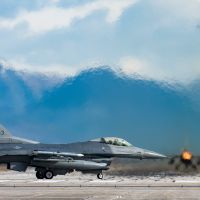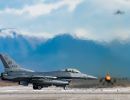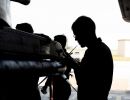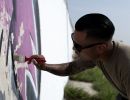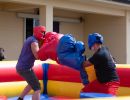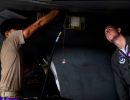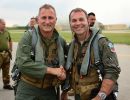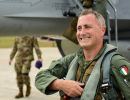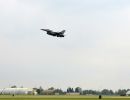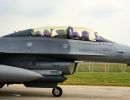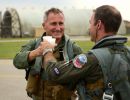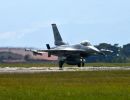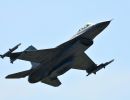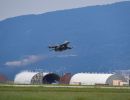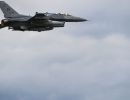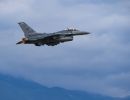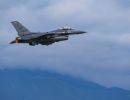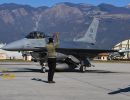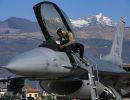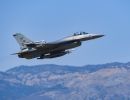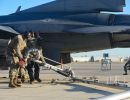Hordes of journalists crowded around McCiver and a few others who were on hand Thursday afternoon to offer their thoughts about the air campaign against Yugoslavian Serbs that began Wednesday evening.
While base officials allowed reporters some access to McCiver, a weapons loader, as well as an F16 crew chief and an electronics specialist, they kept the pilots who participated in the bombing campaign out of sight.
Everybody who flew last night could potentially be flying tonight and we'd like to protect them," said 1st Lt. John Haynes, a base spokesman. "Because of operational security, they will not be available for interviews".
Hungry for any sort of sound bite for the evening news, reporters crammed microphones, cameras and tape recorders around the enlisted airmen during the hour-long "press opportunity" on Aviano's flightline. Most of what the airmen said sounded well-rehearsed.
Anyone who hoped for details of the air raid, bombing coordinates or war-fighting strategies was most likely disappointed.
The airmen, who said they trained constantly to face any enemy, looked amused but slightly intimidated by the media feeding frenzy.
What was worse - going to war or facing the media?
"I'd have to go with the media" laughed Tech. Sgt. Rosie Muniz, who works on the F-16's electronics.
A 17-year Air Force veteran, Muniz spent time in Saudi Arabia during Operation Desert Storm and said there were similarities, between the two missions.
We're helping people, so that's a good thing," she said.
Her focus, she said, was to ensure the electronics on the F-16 operates correctly.
While the fine wiring in all aircraft tend to malfunction from time to time, "it seems like everything worked smoothly" in Kosovo, she said. "If they break, we fix them".
Muniz politely deflected questions about any possible malfunctions from Wednesday's bombing campaign.
Not far from Muniz, Senior Airman Jeremiah Sullivan stood protectively in front of the F-16 he is responsible for maintaining.
While countless reporters grilled him about the first night of the air war, it was something he couldn't say much about.
To my knowledge, everything is good to go," the crew chief said after a brief pause.
Sullivan wouldn't say exactly what the P-16 or other aircraft were capable of in combat. Though the aircraft can be armed with sidewinder, heat-seeking missiles, thousands of pounds in bombs and rapid-
firing bullets from a Gattling gun, he declined to say what weapons were loaded on the aircraft Wednesday night.
He also declined to comment on whether the aircraft would fly into combat at nightfall Thursday, as expected.
This was his first opportunity to participate in an actual combat environment, he said.
Likewise, the bombing campaign is a unique experience for McCiver, but he repeatedly told reporters it was no big deal.
We train the way we work" he said. "We're used to this. The mission is different but we're always sending pilots up there and we always want them to come back".
The fact that all of Aviano's pilots came back safely was a testament to their training and, McCiver said, to the prayers.
I believe it helped," he said.
But after the prayers were said, McCiver didn't spend the night pacing the floor.
We have the most combat-capable aircraft in the world, so I slept well"


